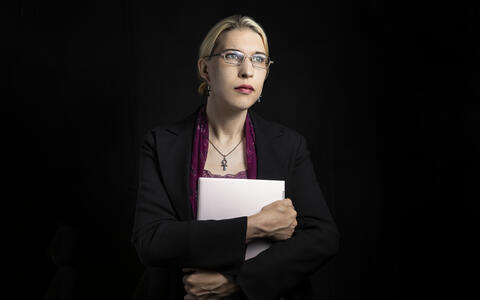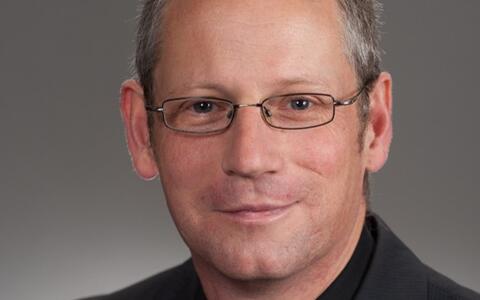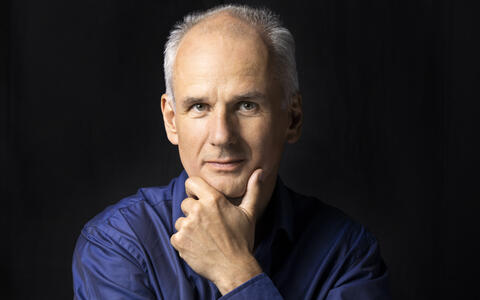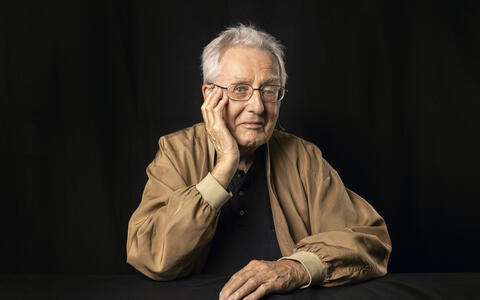Highly cited – and influential
The “Highly Cited Researchers” list identifies researchers who are having a significant impact on the research community based on the rate at which their peers cite their work. The preliminary list is drawn from papers that rank in the top 1% by citations for field and publication year in the Web of Science citation index over the past decade. Combining quantitative and qualitative approaches, bibliometric experts and data scientists at the US company Clarivate Analytics then compile a “who’s who” of influential researchers. Starting in 2022, Clarivate has partnered with Retraction Watch and extended the qualitative analysis, addressing increasing concerns over potential misconduct.
This year’s list features 6,938 individual researchers from nearly 70 countries. The majority of them work in the United States of America (2,764), followed by scientists from China (1,169), the United Kingdom (579) and Germany (369) – such as Dr. Sofia Forslund, Professor Friedemann Paul and Professor Nikolaus Rajewsky.
Furthermore, Research.com publishes the “Best Scientists in the World 2022 Ranking”. The company lists Professor Klaus Rajewsky among the top 500 worldwide, and as number 15 in Germany. The first edition of this ranking is based on data collected from Microsoft Academic Graph in December 2021.
About our scientists
Dr. Sofia Forslund is a junior group leader at the Experimental and Clinical Research Center (ECRC), a joint institution of Charité – Universitätsmedizin Berlin and the Max Delbrück Center. The Swedish bioinformatician creates data-based models that show how we and our gut microbiome develop together toward health or disease.
Professor Friedemann Paul is Director of the Experimental and Clinical Research Center (ECRC), a joint institution of Charité – Universitätsmedizin Berlin and the Max Delbrück Center. His Clinical Neuroimmunology Lab focuses on improving therapeutics and diagnostics for diseases such as multiple sclerosis. During the pandemic, the team has also started to work on post COVID-19 syndrome.
Nikolaus Rajewsky
Professor Nikolaus Rajewsky wants to detect diseases as they develop in the cells and fight them before they begin to cause damage. The systems biologist is Scientific Director of the Berlin Institute of Medical Systems Biology at the Max Delbrück Center (MDC-BIMSB), where he heads the Systems Biology of Gene Regulatory Elements Lab. He is establishing networks at all levels to help cell-based medicine achieve a breakthrough in Berlin and across Europe.
Professor Klaus Rajewsky established standard methods for researching gene functions and diseases like cancer and he continues to contribute to our understanding of antibody-producing B cells. At the Max Delbrück Center, his team studies the genesis of B cell lymphomas in comparison to normal B cell physiology.
Further Informationen
Contact
Jana Schlütter
Editor, Communications Department
Max Delbrück Center
+49 30 9406 2121
jana.schluetter@mdc-berlin.de or presse@mdc-berlin.de
- Max Delbrück Center
-
The Max Delbrück Center for Molecular Medicine in the Helmholtz Association (Max Delbrück Center) is one of the world’s leading biomedical research institutions. Max Delbrück, a Berlin native, was a Nobel laureate and one of the founders of molecular biology. At the locations in Berlin-Buch and Mitte, researchers from some 70 countries study human biology – investigating the foundations of life from its most elementary building blocks to systems-wide mechanisms. By understanding what regulates or disrupts the dynamic equilibrium of a cell, an organ, or the entire body, we can prevent diseases, diagnose them earlier, and stop their progression with tailored therapies. Patients should be able to benefit as soon as possible from basic research discoveries. This is why the Max Delbrück Center supports spin-off creation and participates in collaborative networks. It works in close partnership with Charité – Universitätsmedizin Berlin in the jointly-run Experimental and Clinical Research Center (ECRC), the Berlin Institute of Health (BIH) at Charité, and the German Center for Cardiovascular Research (DZHK). Founded in 1992, the Max Delbrück Center today employs 1,800 people and is 90 percent funded by the German federal government and 10 percent by the State of Berlin.









